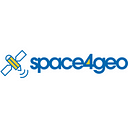NTG: reduce skills gap in the tourism sector
Digital and green skills are becoming core competencies in the tourism sector, but education is not fully in line with industry needs. The skills gap between education and the industries of the sector needs to be reduced. Silvia Barbone (Next Tourism Generation, NTG) illustrates similarities and possible collaborations between the tourism and the geospatial sectors to reach common goals.
1) What do you think are the major similarities with your sector?
The Next Tourism Generation (NTG) project is responding to digital, soft and green skills gaps in tourism and hospitality. Both sectors, tourism and space, are incredibly dynamic in terms of future skills and occupational profiles; they have to continuously capture and represent ‘new emerging skills”. For both sectors, digital and green skills are core competencies, as well as soft skills are fundamental to navigate the future. In both sectors, we have not only a skills gap but a gap in cooperation models. From this perspective, the fundamental similarity is in the methodological approach of the NTG and EO4GEO projects: the design and the implementation of a strategic and transformative cooperation model between education/ industry/ government.
2) What is the one take away from trying to identify current skill shortages and gaps between education and sectoral needs?
The key take away is that the tourism skills gap needs to be monitored and assessed continuously, together with the industry and the educational systems and the support of the public authorities. The tourism sector is extremely dynamic; it is a fast-changing sector. Today more than ever, with the impact of the COVID-19, we will have a different industry by the end of the year.
At NTG, we have put in place several tools from the NTG matrix to the Tourism Skills Assessment Methodology to the implementation of the Industry Skills Groups to monitor the mismatches and generate innovative solutions. We are already working on prioritizing the essential digital, soft, and sustainable skills, needed for the near future.
3) What are the challenges when it comes to implementing the Blueprint action plan?
The Blueprint for Sectoral Cooperation on Skills brings together businesses, education and training providers, professional associations, chambers of commerce, social partners, public authorities and other relevant stakeholders to develop a targeted strategy and concrete country action plans to close the skills gap in the tourism sector. Stakeholders’ engagement, which is the key to success, is, at the same time, the key challenge to make sure that the Action Plan will be adopted, implemented, and monitored. We have been addressing this challenge by launching “Industry Skills Gap Groups” in each country (Italy, Spain, Germany, Bulgaria, Hungary, Netherland, United Kingdom), bringing together all the stakeholders.
One more challenge is the ability to launch the “Blueprint Action Plans” with a sustainable, long-lasting approach. To succeed from this perspective, we need institutional support at the European, national, and regional level, while we build and implement the Blueprint mechanism in the ground.
4) Could you propose an example of how EO4GEO and NTG can collaborate, especially in relations to the sub-sector blue economy?
In tourism, digital and green skills are more connected than ever, as the Covid19 is showing. The cooperation between the two sectors can empower destinations with the right skills to drive economic and social recovery.
The Next Tourism Generation project addresses, in particular, five tourism sub-sectors: visitor attractions, accommodation, destination management, tour operators, food and beverage, which are all critical for the blue economy, in particular for coastal tourism.
As the first thing, we could try to bridge some elements of your “Body of Knowledge” with our Resource Hub, which will soon be launched.
We have also different strategic and operational ways to cooperate: identifying common digital, green, and soft skills for the Blue Economy, as well as identifying transversal occupational profiles, building curricula. The best effective way to start would be identifying a geographical context where to cooperate.
